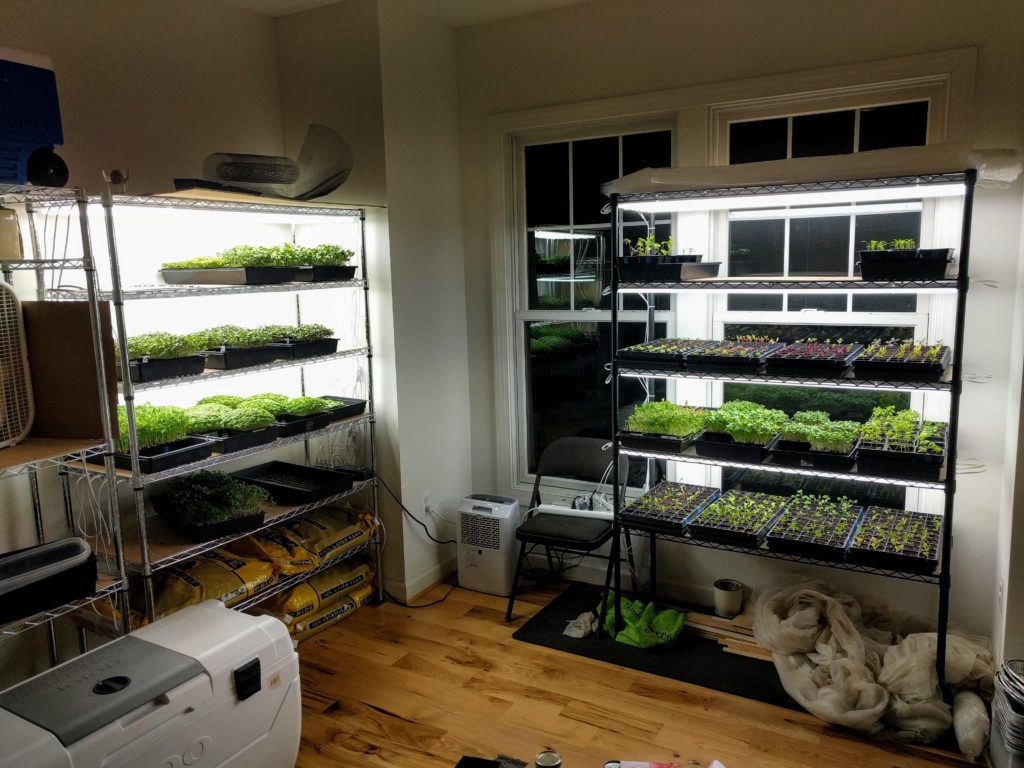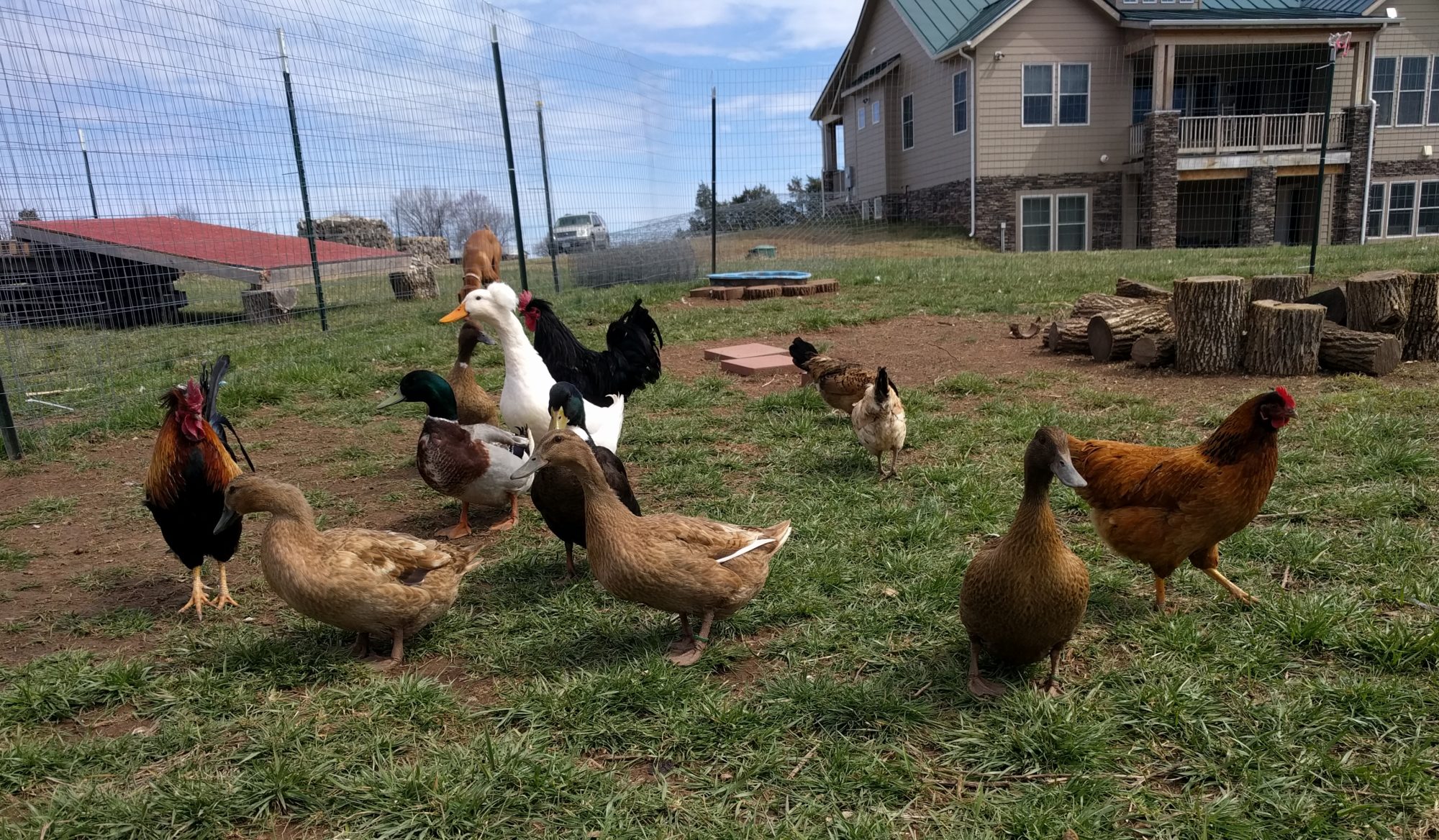
March is here! Almost daylight savings time! The winter market is beginning to wane and the main season market is starting to appear on the horizon. The official schedule, as we understand it, is that the last winter market (9am – 1pm time slot) will be Saturday, March 28 and the first main season market (8am – 1pm time slot) will be Saturday, April 4. (Not sure about the Thursday market schedule.)
We’ll be at the market again this Saturday, so come out and see us if you can. Weather is looking pretty good. And now for another FAQ entry…
Is your farm organic?
If you’re a fan of the US Department of Agriculture, they state that “only certified operations can sell, label or represent products as organic, unless exempt or excluded from certification” (link). So “organic” is a word that farmers *should* be careful about using in advertising. Pennington Market Farm has not been certified as organic by the USDA, and we have not tried to claim our farm or any of our products as being organic. Some vendors at some farmers markets may have labeling or otherwise claim “organic” for their farm or products… we recommend that the diligent consumer doublecheck said farm(s) on the USDA Organic Integrity Database (link).
We’ve certainly given thought to getting certified as organic, at least with our microgreens. Many of our seeds are certified organic and we use certified organic soil. It would likely simply be a matter of doing the paperwork and paying the various fees.
Certifying our eggs, on the other hand, would be a harder process. To our understanding, for poultry/eggs to be certified, the farmer would need to prove/show that the birds have eaten only certified organic feed since birth (I would imagine natural, approved pasture would be fine, as well). In our case, though we do provide plenty of pasture for forage, we supplement our birds’ diets with feed that is not certified organic. Even if we were to begin using organic feed today, we wouldn’t be able to certify the eggs until all of our currently-laying hens were replaced with hens which had eaten organic feed since birth. So that presents a non-trivial hurdle.
Generally, we have considered aiming for some form of certification, whether USDA organic or GAP or Certified Naturally Grown, etc. It would seem that having third party certification of some kind could only be a good thing. But we’re still relatively new to this whole farming endeavor, and we want to get a little further down the road before we attempt something like that. As always, we shall see how it goes.
